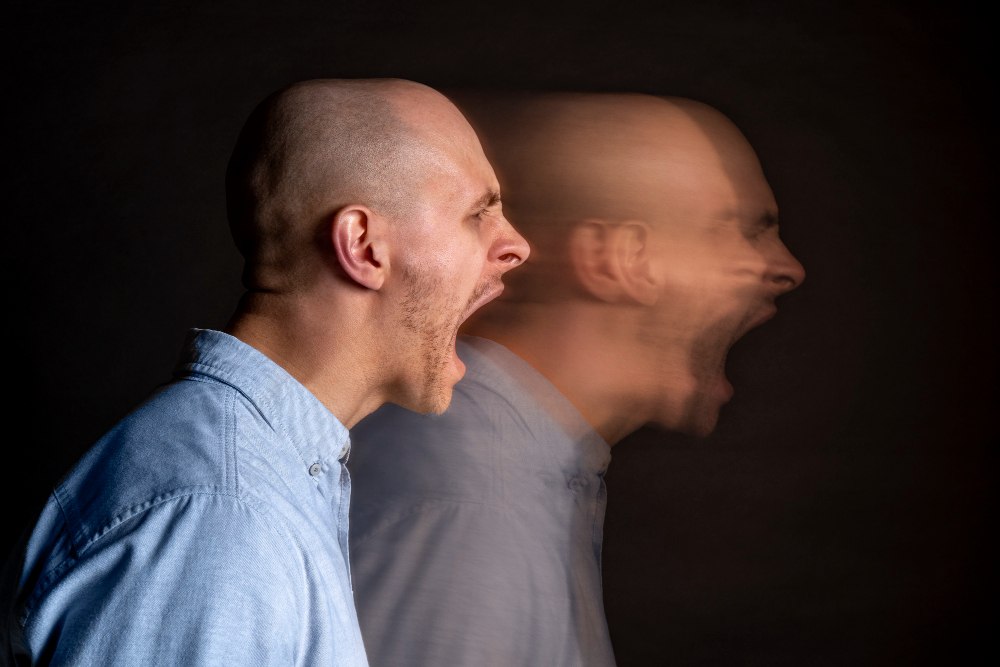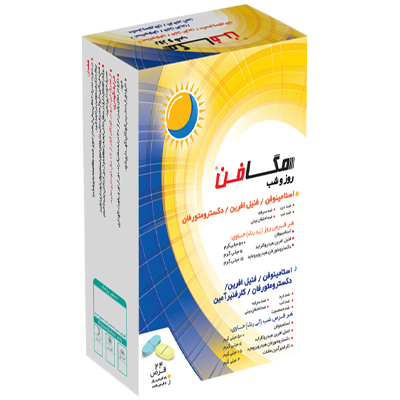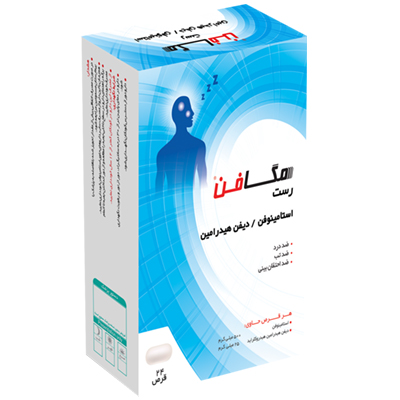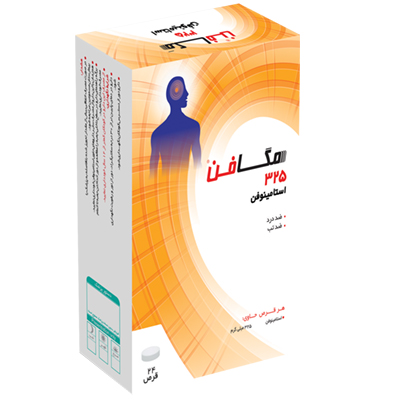Bipolar disorder is one of Types of depression It is a mental disorder characterized by periods of severe depression and periods of extreme emotionality (mania). For many of its patients, this disease has serious effects on their quality of life, social relationships, work, and education.
What are the types of bipolar disorder?
Type 1 and Type 2. In bipolar I disorder, episodes of depression and mania occur in high intensity. In bipolar II disorder, episodes of hypomania (less severe than mania) and major depression occur independently and alone.
Diagnosis of mental disorders In addition to observing symptoms and performing various tests, it is the responsibility of a specialist doctor, as we mentioned in another article. The following is a review of the symptoms, causes, risk factors, and treatment of bipolar disorder:
Symptoms of bipolar disorder
Symptoms of bipolar disorder include periods of depression and periods of high emotion (mania). During periods of depression, patients may experience feelings of sadness, hopelessness, fatigue, loss of appetite, sleep disturbances, negative thoughts, and feelings of worthlessness. During periods of high emotion, patients may experience excessive joy, feelings of power, undesirable thoughts and actions, rapid thinking, and feelings of inability to control themselves. In general, the symptoms of this disorder are divided into the following categories:
- دورههای افسردگی شدید: احساس ناامیدی و بیاشتهایی، افکار منفی و تاریک، خستگی، تغییرات در وزن، مشکلات خواب، افزایش تحرک و یا آرامی، افکار خودکشی و انتقال احساسات مثبت.
- دورههای هیپومانیا: شادی بیش از حد، حرف زدن بیوقفه، احساس کمتوجهی، افزایش انرژی، خوداعتمادی بیش از حد، رفتارهای خطرناک یا خجالتانگیز، خلق و خوی پرانرژی و بی قید و شرط.
- دورههای مانیای شدید: شادی و هیجان بیش از حد، تفکر شتابزده، خلق و خوی تحریکانگیز، بیملاحظه بودن به نسبت خطرات، افکار شرورانه، افزایش فعالیتهای جنسی، خودباوری بیش از حد.
- دورههای مختلط: ترکیبی از علائم دورههای افسردگی و هیپومانیا، مانند احساس ناامیدی و همزمان افزایش انرژی، تفکر شتابزده و همزمان شرودهگی افکار

Causes of bipolar disorder
The cause of bipolar disorder is not yet fully understood, but it appears to be due to one or a combination of the following causes:
عوامل ژنتیک: اختلال دوقطبی میتواند به دلیل وجود ژنهای ارثی بروز کند.
عوامل شیمیایی: عملکرد سیستم عصبی مغز با ترکیبات شیمیایی خاصی که نوروترانسمیترها کنترل میشوند. در اختلال دوقطبی، سطح نوروترانسمیترها در مغز تغییر میکند. نوروترانسمیترهایی مانند سروتونین، نوراپینفرین و دوپامین در این اختلال نقش دارند.
عوامل محیطی: عوامل مختلف محیطی میتوانند از جمله عوامل موثر در بروز اختلال دوقطبی میباشند. برخی از این عوامل عبارتند از: مصرف مواد مخدر، استفاده از الکل، استرسهای روانی شدید، رویدادهای زندگی مهم و مسائل اجتماعی.
For people who have a family history of this disorder or experience symptoms of it, it is best to see a doctor and seek advice on treatment and prevention of this disorder.
Risk factors for bipolar disorder
Risk factors for bipolar disorder include having a family history of the disease, drug and alcohol use, high stress levels, inability to control anger and emotions, and imbalances in certain neurotransmitters in the brain.
Exacerbations of bipolar disorder symptoms can be caused by a variety of factors, including environmental, chemical, psychological, and physical activities. Some of the important factors that may exacerbate bipolar disorder symptoms include:
- تغییرات در روتین روزانه: تغییرات در روتین روزانه شامل تغییرات در ساعات خواب و بیداری، تغییر در روزهای تعطیل و تعویض محیط کاری و زندگی میباشد. این تغییرات ممکن است باعث افزایش تنش و استرس شوند که منجر به تشدید علائم اختلال دوقطبی میشوند.
- مصرف مواد مخدر و الکل: مصرف مواد مخدر و الکل ممکن است باعث تشدید علائم اختلال دوقطبی شود و این عوارض را بدتر کند.
- تنشهای روانی: تنشهای روانی شامل تنشهای اجتماعی، خانوادگی، مالی، شغلی و غیره میباشد که ممکن است باعث تشدید علائم اختلال دوقطبی شود.
- فعالیتهای جسمانی: فعالیتهای جسمانی شدید ممکن است باعث افزایش سطح هورمونهای استرسی مانند کورتیزول شود که منجر به تشدید علائم اختلال دوقطبی میشود.
- تغییرات در داروهای مصرفی: تغییرات در داروهای مصرفی ممکن است باعث تشدید علائم اختلال دوقطبی شود.
How to diagnose bipolar disorder
A diagnosis of bipolar disorder can be made by a psychiatrist based on your clinical symptoms and medical history. To diagnose bipolar disorder, your doctor may use the following methods:
- مصاحبه بالینی: پزشک شما با شما مصاحبه میکند و در خصوص تاریخچه بیماری، علائم موجود و تأثیر آنها بر زندگی شما پرسش میکند.
- ارزیابی علائم: پزشک شما علائم شما را ارزیابی میکند و به دنبال نشانههای اختلال دوقطبی، شامل حالتهای مانیایی و افسردگی، افکار خودکشی، اضطراب و هیجانات غیرمعمول میگردد.
- آزمایشهای جسمانی: پزشک شما ممکن است برای اطمینان از عدم وجود بیماریهای جسمی که با علائم شبیه به اختلال دوقطبی همراه هستند، آزمایشهای جسمانی برای شما تجویز کند.
- تستهای روانشناختی: پزشک شما ممکن است برای ارزیابی شدت علائم شما، از تستهای روانشناختی مانند پرسشنامه دوقطبی سازمان اطلاعات روانپزشکی (Mood Disorder Questionnaire)، مقیاس دوقطبی پیشرفته (Young Mania Rating Scale) و مقیاس افسردگی همگانی (Beck Depression Inventory) استفاده کند. برخی از Psychiatric tests It is explained in another article.
- تستهای عصبروانشناسی: برخی از تستهای عصبروانشناسی مانند الکتروانسفالوگرافی (EEG) و اسکن مغز (MRI) نیز ممکن است برای ارزیابی علائم شما توسط پزشک شما در نظر گرفته شود.
In general, a diagnosis of bipolar disorder should be made by a mental health professional, and you should not self-diagnose based on the symptoms you experience.
Treatment of bipolar disorder
Cognitive-behavioral therapy and psychotherapy can help patients with a diagnosis of bipolar disorder. Cognitive-behavioral therapy can help patients improve social skills, manage their thoughts and feelings, and improve their relationships. Psychotherapy can also help patients manage medication side effects, reduce stress, and improve sleep quality.
Treatment for bipolar disorder also includes medications that help control episodes of mania and depression. At the discretion of the treating physician, lithium and other medications can help reduce the severity of these episodes in patients with severe mania. Antidepressants such as sertraline and fluoxetine can be helpful in patients with severe depression. In another article on The difference between antidepressants and antipsychotics We talked.
Lifestyle changes can also help patients with bipolar disorder. Improving sleep quality, managing life stress, avoiding drug and alcohol use, and creating a regular schedule to organize daily activities can all be effective remedies.
Therefore, bipolar disorder is a serious illness that requires proper treatment. By combining medication, psychological therapy, and lifestyle changes, patients can have a better quality of life and be more resilient to emotional episodes and depression.
Is it possible to completely cure bipolar disorder?
Bipolar disorder is a chronic condition, but with proper treatment and effective management, patients can have more control over their symptoms and experience a better quality of life.
هرگونه تشخیصگذاری و تجویز دارو به بیماران فقط تحت نظر پزشک معالج صورت خواهد گرفت لذا اکیدا توصیه میشود از مصرف خودسرانه این داروهاجدا خودداری فرمایید زیرا هر دارو به موازات اثرات مطلوب درمانی واجد عوارض جانبی جدی نیز میباشد بنابراین تجویز دارو تصمیم گیری جهت بازه زمانی دارو درمانی و همچنین پایش عوارض جانبی میباست تحت نظارت مستقیم کادر درمانی انجام پذیرد.
درمان بیماری دو قطبی شامل Drug treatment and psychotherapy Drug treatment includes medications that help control emotional episodes and depression. Antipsychotic medications such as Quemind, lithium, valproate, carbamazepine, and lamotrigine can help control emotional episodes and depression. Antidepressants can also help control depressive episodes.
It should be noted that quetiapine should only be used with the prescription of a physician for other psychiatric disorders such as: Schizophrenia and اMajor depression It can be useful.
Psychotherapeutic approaches such as cognitive-behavioral therapy and psychotherapy can help patients improve their social skills, thoughts and feelings, and relationships. Psychotherapy can also help patients manage medication side effects, reduce stress, and improve sleep quality.
It is important to note that you should strictly avoid taking medications on your own and be sure to contact a doctor specializing in any field to improve any issues that arise.
Conclusion
اختلال دوقطبی یک بیماری روانی است که باعث تغییرات شدید خلقوخو، از افسردگی عمیق تا شیدایی یا هیجان بیش از حد، میشود. شناخت این اختلال شامل درک علائم آن، مانند نوسانات شدید احساسی، تغییرات در سطح انرژی و الگوهای خواب، و همچنین تأثیر آن بر روابط و عملکرد فردی است. درمان آن معمولاً ترکیبی از داروهای تثبیتکننده خلق، رواندرمانی و تغییرات سبک زندگی مانند مدیریت استرس، خواب کافی و فعالیتهای منظم است. مراجعه به روانپزشک یا متخصص سلامت روان نقش مهمی در یافتن راهکار مناسب برای کنترل و بهبود این اختلال دارد.





